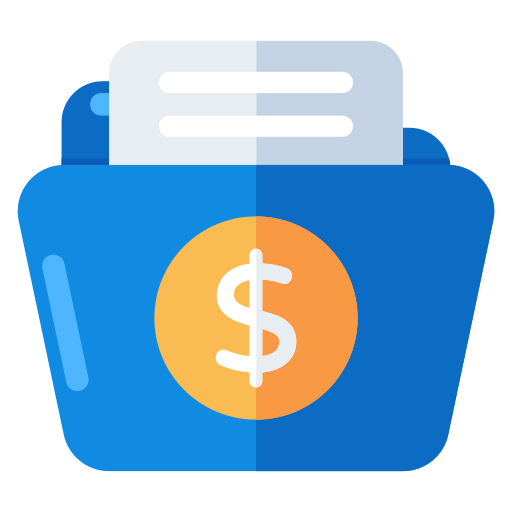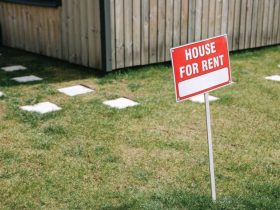When is the best time to make an early mortgage repayment?
Financial matters are always a maze, but when it comes to your mortgage, the confusion can reach new levels. One of the most common questions is when is the best time to do an early mortgage repayment? So, let’s get down to business! Let’s tackle this question and unravel the details of mortgage repayment.
What is early repayment of a mortgage and why do it?
Concept of early amortization
It refers to the payment of part or all of your mortgage loan before the agreed term. It’s like saying goodbye to those monthly payments that you always look at with some fear on your bank statement.
Advantages of early amortization
The best thing about paying off your mortgage early? First, you reduce the burden of the mortgage loan, which eases your financial situation and increases your ability to save. In addition, by paying off the mortgage early you can reduce the amount of interest on the mortgage, because if the life of the loan is reduced, so is the interest.
Disadvantages of early amortization
However, when you say hello to early repayment, you may also have to say hello to the repayment fee. Plus, you could throw your finances out of balance if you don’t manage this repayment within your budget.
When is the best time to pay off your mortgage?
Factors to determine the best time to amortize
A key factor in determining the best time is your financial situation. Your mortgage interest rate, the amortization system applied, and your bank’s policy regarding early repayment fees also play a role.
Impact of interest rate on the decision to amortize
It’s vital to understand that your mortgage interest rate impacts your decision. If your mortgage is a variable rate mortgage and the interest rates are low, it might be a good time to pay off. On the other hand, if it’s a fixed-rate mortgage, the payoff will have less of an impact on the interest you’ll pay.
The importance of the amortization system
But that’s not all. You should also take into account the amortization system of your mortgage. For the French amortization system, used in most mortgages, if you decide to pay off the loan early at the beginning, you will achieve greater savings on interest.
Is it better to pay off your mortgage or save?
Benefits of paying off your mortgage
Paying off your mortgage can bring financial relief and allow you to have greater peace of mind. What’s more, if you take out your mortgage with a high interest rate, paying it off can result in considerable savings.
Benefits of saving
On the other hand, saving allows you to have a reserve for unforeseen events or to invest in other projects. Therefore, you must make a careful analysis and weigh whether it is convenient to make an early repayment of the mortgage or if it is better to save or even invest that money elsewhere.
What is more convenient?
The choice between paying off your mortgage or saving that money is like a game of chess. Each action you take can have significant implications for your finances. At the end of the day, the conclusion will be different for each person depending on their financial context.
The difference between amortizing a mortgage at a variable rate or a fixed rate
Amortization on a variable rate mortgage
If your mortgage is variable rate, it can be especially beneficial when interest rates are low, thereby reducing the cost of the loan you still have to pay.
Amortization on a fixed-rate mortgage
In the case of a fixed-rate mortgage, it will allow you to reduce the payment but not the interest you will pay at the end. So, here the decision to make the amortization will depend on whether the saving on the payment represents a significant relief for your economy or not.
Which is better for early repayment?
Whether you choose a variable-rate mortgage or a fixed-rate mortgage, the decision on when to repay should be made based on a careful review of your financial situation, the terms of your mortgage, and market conditions.
How to effectively pay off your mortgage?
Preparing for early repayment
Whether you’re considering partial or full amortization, it’s important to analyze your financial situation and fully understand the terms of your loan. Paying off your mortgage early shouldn’t put your financial stability at risk.
Managing amortization within your budget
Managing amortization properly within your budget is key. Remember, the idea is to ease your financial burden, not increase it. So plan carefully and make sure you’re not putting other areas of your finances at risk.
Ways to carry out early amortization
There are several ways to repay. You can do it in one lump sum or increase the amount monthly. Regardless of which option you choose, make sure it’s right for your financial situation.
1. Prepayment in full: This option allows you to pay off the entire debt in one go. This can be a good option if you’ve received a significant amount of money, such as an inheritance or year-end bonus. However, it can also result in a prepayment penalty, so be sure to check the terms of your loan.
2. Extra payments: Instead of making a full prepayment, you can make extra payments over time. This can include paying a little more each month or making one extra payment a year. This option may be more manageable for some people, but it may also take longer to complete the full amortization of the loan.
3. Increase the amount of your payments: Similar to making extra payments, you can increase the amount you pay each month. This will allow you to pay more principal and less interest over time. However, make sure you can afford the higher monthly payment before choosing this option.
4. Refinance: If you have a loan with a high interest rate, it may be beneficial for you to refinance to a lower rate. This can result in a lower monthly payment, allowing you to pay more toward the principal of the loan.
5. Use a home equity line of credit (HELOC): If you have enough equity in your home, you may consider a HELOC to pay off your loan. This may allow you a lower interest rate, but keep in mind that your home is at risk if you can’t make the payments.
6. Rounding up payments: A final option may be to round up your monthly payments to the next whole number. While this method may not seem like it would make much of a difference, it can add up over time and help you pay off your loan faster.
Remember, before deciding on any method, it is essential that you review your loan contract to see if there are any penalties. Also, make sure that any extra payments you make go directly to the principal of the loan, not to the interest. You can do your simulations in this Banco de España amortization simulator.
Now that you are better equipped with knowledge about when and how to pay off your mortgage, you can make more informed and profitable financial decisions. Go ahead!
Frequently asked questions and quick answers
We have gathered for you some of the most common questions our clients ask us on this topic.
Why should you consider paying off a mortgage early?
You reduce the amount of your mortgage loan, which leads to a lower interest payment in the future. However, you should consider whether amortizing or investing the money elsewhere will give you a better return.
How can I make an early repayment?
You can choose between partial amortization, where you pay part of the mortgage upfront, or full amortization, where you pay off the entire mortgage. This will depend on your financial capabilities and your long-term goals.
What is the impact on my rate if I decide to pay off my mortgage early?
If you decide to pay off your mortgage early, it may result in a lower monthly payment on future mortgage payments or, alternatively, a shorter loan period.
When is the best time?
It will depend on your personal and financial situation. Some people find it beneficial at the beginning, to reduce the amount of interest you pay in the long term, while others prefer it when they have excess liquidity.
Is there any type of penalty for paying off the mortgage early?
In some cases, yes. This will vary depending on the type of mortgage and the conditions set by the lender. It is advisable to review the terms of your mortgage or speak to a financial advisor before making the decision.
Is it beneficial to pay off a variable mortgage early?
In theory, yes. A variable-rate mortgage can reduce future interest payments. However, you should also consider other investments that may offer a higher return.
Can I decide how much I want to pay off my mortgage each year?
Yes, you can decide how much and when each year. This can be a fixed amount or a percentage of the remaining mortgage amount.
Is it possible to pay off the mortgage at any time?
Yes, you can do it at any time of the year without any problem. However, you must bear in mind that the mortgage is considered amortized for tax purposes at the time of payment.
How does mortgage amortization affect interest payments?
Each time you pay off part of your mortgage early, you reduce the amount of the loan outstanding. This reduces the amount that goes toward future interest payments because you are reducing the base on which interest is calculated.
Can any type of mortgage be repaid early?
Yes, all mortgages, but there may be conditions or penalties depending on the type of mortgage you have. We recommend making the best decision after consulting with a mortgage loan expert.



















Leave a Reply